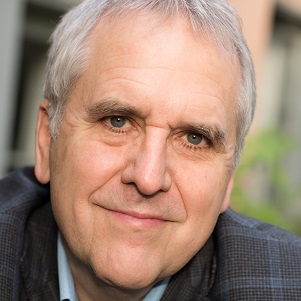Michael I. Jordan is a professor at the University of California, Berkeley. He has also been a professor at the Massachusetts Institute of Technology. His research accomplishments span the computational, statistical, biological, and economics fields.
Professor Jordan is known for his work on variational methods for statistical inference and also for variational approaches to continuous optimization. He has worked on probabilistic graphical models, with applications to problems in computational biology, information retrieval, and signal processing. He has worked on distributed systems for machine learning and optimization. He is also known for his work in optimal control theory, multi-armed bandits, and matching markets.
Professor Jordan is a member of the National Academy of Sciences, the National Academy of Engineering, and the American Academy of Arts and Sciences. He has received the IEEE John von Neumann Medal, the AMS Ulf Grenander Prize in Stochastic Theory and Modeling, the IJCAI Research Excellence Award, the David Rumelhart Prize, and the ACM/AAAI Allen Newell Award. He was a Plenary Lecturer at the International Congress of Mathematicians in 2018.
Professional position
- Professor, Department of Electrical Engineering and Computer Sciences, University of California, Berkeley
- Professor, Department of Statistics, University of California, Berkeley
Subject groups
-
Computer Sciences
Artificial intelligence, machine learning, vision, Numerical computing
-
Mathematics
Applied mathematics and theoretical physics, Statistics and Operational Research
-
Astronomy and Physics
Mathematical and theoretical physics, Statistical
-
Engineering and Materials Science
Communications incl information theory, Engineering, control (incl robotics)
-
Molecules of Life
Biochemistry and molecular biology
-
Patterns in Populations
Biological modelling
-
Health and Human Sciences
Economics

